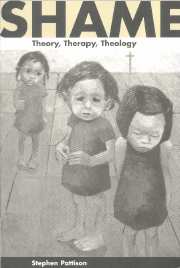Book contents
- Frontmatter
- Contents
- Preface
- Introduction
- PART I APPROACHING SHAME
- PART II ENCOUNTERING SHAME
- PART III SHAME AND CHRISTIANITY
- Introduction: bringing Christianity into the picture
- 8 Modern Christian responses to shame
- 9 Shame in Christianity
- 10 Towards more adequate approaches to shame
- Epilogue
- Bibliography
- Index
8 - Modern Christian responses to shame
Published online by Cambridge University Press: 05 June 2012
- Frontmatter
- Contents
- Preface
- Introduction
- PART I APPROACHING SHAME
- PART II ENCOUNTERING SHAME
- PART III SHAME AND CHRISTIANITY
- Introduction: bringing Christianity into the picture
- 8 Modern Christian responses to shame
- 9 Shame in Christianity
- 10 Towards more adequate approaches to shame
- Epilogue
- Bibliography
- Index
Summary
Anoint and cheer our soiled face
With the abundance of thy grace
(Veni, creator Spiritus)This chapter critically reviews some of the main theological and practical responses to the phenomenon of shame from within the Christian community in the twentieth century. Few theologians have taken shame as a central category for theological analysis and understanding. However, on the level of pastoral theory, there is a growing body of literature that refers to the understanding and pastoral treatment of dysfunctional shame. Much of this emanates from North America where shame has become a major psychological category for understanding the ills of the self. Even here, though, there are a limited number of understandings of shame and its implications. A number of theorists claim to provide theologically and religiously informed understandings and approaches to shame. However, there is little of substance that the Christian community has to offer to those who suffer the alienation and unwantedness of dysfunctional shame. Those who claim expertise often derive this from secular, mostly psychological, theorists who are themselves often defeated by the dynamics of chronic personal and social shame.
My purpose here is to reveal the nature and limits of Christian religious and theological activity in relation to shame. This represents an attempt to be honest about the limits of understanding, knowledge and concern. It is only by recognising and accepting limits and gaps that we may gradually get into a position where appropriate religious understandings and responses to shame can be formulated. Many theorists and theologians obscure the complexity and problematic nature of shame with over-simplistic responses. The beginning of wisdom lies with the acknowledgment of ignorance and the acceptance of practical impotence and inadequacy.
- Type
- Chapter
- Information
- ShameTheory, Therapy, Theology, pp. 189 - 228Publisher: Cambridge University PressPrint publication year: 2000



